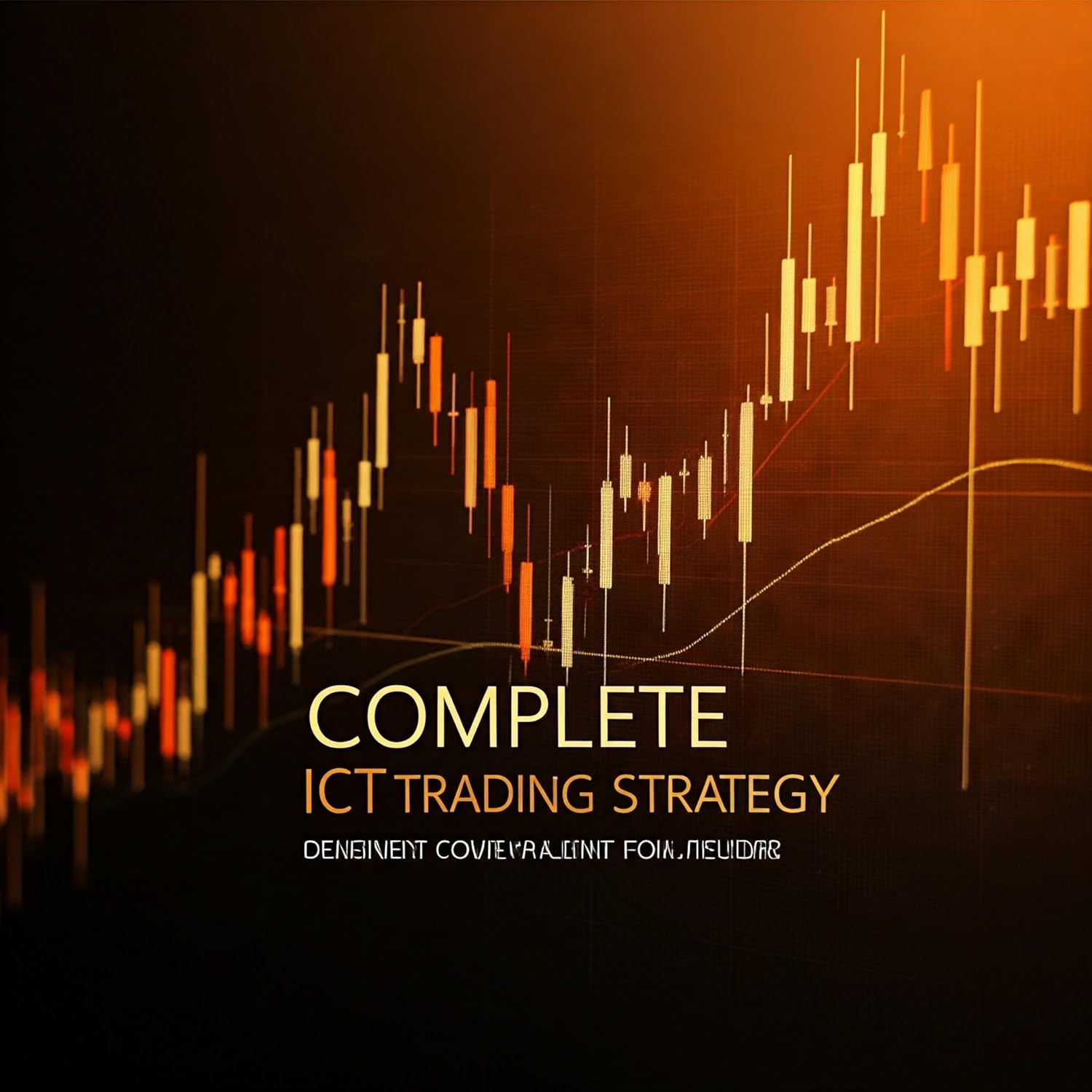Price: $8.00 - $7.49
(as of Jun 07, 2025 13:40:32 UTC – Details)
Be a Institute Trader ©️
A complete ICT (Inner Circle Trader) trading strategy is rooted in technical analysis and price action concepts, aiming to capitalize on market manipulation and the activities of large institutional players. Below is a structured guide to an ICT trading strategy, which includes a blend of key elements that ICT traders often consider:
1. Market Structure Analysis
Identify Market Trend: Determine if the market is in an uptrend, downtrend, or ranging. This is often done on a higher time frame, like the daily or 4-hour charts, to gain a broader perspective.
Key Levels: Mark support and resistance levels, order blocks, and areas of supply and demand where price has previously reacted significantly.
Break of Structure (BOS): Look for BOS to confirm changes in market direction. For example, a break of a previous low in an uptrend might indicate a potential reversal.
2. Liquidity Concepts
Liquidity Zones: ICT traders often look for liquidity around key levels, such as swing highs and lows, or near psychological levels (like round numbers). This is where stop orders are likely accumulated, offering a target for larger institutional moves.
Liquidity Pools: Identify zones where liquidity pools (clusters of stop losses or buy/sell orders) may be resting. These are typically above highs in a downtrend and below lows in an uptrend.
3. Order Blocks and Fair Value Gaps
Order Blocks (OBs): An order block is a cluster of buy or sell orders left by institutions. They often precede a strong price move and indicate where price may return to retest. Look for bullish OBs in an uptrend and bearish OBs in a downtrend.
Fair Value Gaps (FVGs): FVGs are gaps in price action left after a strong move. These often act as areas of retracement, where price may fill before resuming its trend.
4. Time and Session Analysis
Optimal Trading Times: ICT emphasizes trading during peak sessions, particularly the London and New York sessions, where volume and volatility are higher.
Kill Zones: ICT traders often use specific time frames, known as “kill zones,” to enter trades. Examples include the London Open (2-5 AM EST) and the New York Open (8-11 AM EST).
5. Entry Techniques
Confirmation Entries: Wait for a reversal pattern or BOS within a key level (like an order block or liquidity zone) on a lower time frame (5-minute or 15-minute chart) to confirm entry.
Entry Triggers: Common triggers include engulfing candles, pin bars, or small BOS within the identified zone.
Stop Loss Placement: Place stop-loss orders above the recent swing high or below the swing low for protection against market spikes.
6. Exit Strategy
Target Liquidity Zones: Target liquidity pools or previous highs/lows as potential exit points, where price may react.
Risk-Reward Ratio: Aim for a minimum risk-reward ratio of 1:2 or 1:3 to ensure that profitable trades outweigh losses.
Trailing Stops: As price moves in your favor, consider using trailing stops to secure profits, adjusting based on new swing highs/lows.
7. Risk Management
Position Sizing: Use a consistent risk management approach, risking no more than 1-2% of your account per trade.
Daily Loss Limit: Set a daily or weekly loss limit to avoid over-trading during periods of drawdown.
Emotional Discipline: Stick to your trading plan and avoid revenge trading after losses.
8. Backtesting and Journaling
Many More Thing
Be a Pro Trader and Share to your trader friend…
ASIN : B0DN24Y77J
Accessibility : Learn more
Publication date : November 13, 2024
Language : English
File size : 24.8 MB
Simultaneous device usage : Unlimited
Screen Reader : Supported
Enhanced typesetting : Enabled
X-Ray : Not Enabled
Word Wise : Enabled
Print length : 244 pages
Page Flip : Enabled
Reading age : 14 – 18 years





Reviews
There are no reviews yet.